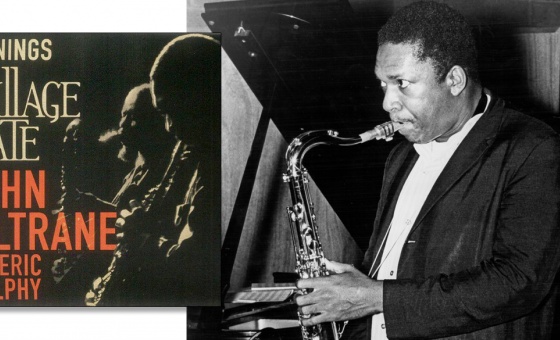This is the last article you can read this month
You can read more article this month
You can read more articles this month
Sorry your limit is up for this month
Reset on:
Please help support the Morning Star by subscribing here
IN order to win the election, the Labour Party not only has to capture dozens of Tory-held marginal seats which voted Leave in the EU referendum — it also has to retain most if not all of the seats won at the last election in June 2017.
For the past 90 years, Labour has been able to count on its loyal supporters in Wales to return a majority of Labour MPs to Westminster. The south Wales mining valleys, in particular, have voted more solidly for Labour than any other major region of Britain since 1922.
However, there have been some worrying signs that this loyalty is under strain. The first opinion poll in Wales in the current campaign, carried out by YouGov, puts Labour just one percentage point above the Tories.
At 29 per cent, this represents an enormous fall from the party’s share in June 2017. One small compensation is that it reverses what was a Tory lead of 1 per cent in last month’s poll.
Even so, a Cardiff University blogsite estimates that the swing to the Tories since the last election might be enough for them to take up to nine Welsh seats from Labour, with none going the other way.
A note of caution is in order, however. Polls also put the Tories ahead of Labour in Wales in the earlier part of the campaign last time around. As in Britain as a whole, these findings proved to be rather wide of the mark when the votes were counted.
The Tories won eight of the 40 Welsh seats in 2017 with 34 per cent of the vote, compared with Labour’s 28 seats with 49 per cent. Nonetheless, there have been other signs that Welsh Labour’s traditional support has been fraying around the edges.
In the 2016 National Assembly elections, for instance, Labour’s share of the constituency and regional list votes fell to 35 and 32 per cent respectively, while Leanne Wood’s Plaid Cymru rose to 21 per cent. Ukip picked up 12 per cent.
In the EU Parliament elections in May this year, Labour finished third with just 15 per cent of the vote, behind Plaid Cymru (20 per cent) and the Brexit Party (32 per cent).
Admittedly, this was on the low turnout expected in elections to a sham “parliament” with no legislative powers worth a mention. But statistical analysis shows that there was an additional layer of abstentions among Labour’s supporters, especially in Labour areas that had voted Leave in the EU referendum.
The Brexit Party appears to have lost ground since then, although the YouGov poll still puts its support at 15 per cent, ahead of Plaid Cymru and the Lib Dems on 12 per cent each. No doubt, many working-class electors will return to Welsh Labour on December 12, including the majority of those who want to leave the EU. Some may turn instead to the Brexit Party, although very few would ever vote Tory.
The main danger is that many traditional Labour supporters who support Brexit will not vote at all, as happened in August’s Brecon & Radnor parliamentary by-election. They feel let down by British Labour’s abandonment of its pledge to honour the EU referendum result and its shuffle towards a second referendum.
Labour’s overtly anti-Brexit stance has further alienated some traditional supporters in Wales. Today, as in the disastrous EU elections, Welsh Labour not only proclaims its support for a second referendum; as its spokesperson told the BBC recently, echoing Welsh First Minister Mark Drakeford, “If people want the final say on Brexit they should vote Welsh Labour, and in that public vote we will campaign to Remain.”
Plaid Cymru is also campaigning strongly to overturn the Brexit vote favoured by the majority of Welsh voters and at least one-third of that party’s own supporters in the last general election. But Plaid Cymru’s participation in an anti-Brexit, anti-Labour pact with the Lib Dems and Greens could backfire.
Welsh voters tend to have long memories and many will not quickly forget the role of the Lib Dems as the Tories’ little helpers in the austerity and privatisation government of 2010-15.
A clear majority of the electors polled by YouGov think Brexit is the most important issue in this year’s election regardless of their own standpoint, followed by health, the economy and the environment. Opinion is equally split on whether there should be a second EU referendum, although a slight majority say they would vote to remain in the EU in that event.
This, again, is not a good situation for Labour in Wales. Jeremy Corbyn and the central party’s leadership are working to shift the hustings battleground onto domestic issues where Labour has popular positions on public ownership, public investment, women’s pensions and workers’ rights; but some prominent Welsh Labour politicians keep on returning to their pro-Remain campaign like a dog returning to its vomit.
Like Plaid Cymru, they may have been fooled by a study unveiled recently by Professor Danny Dorling of Oxford University. He claims that Leave only secured a majority of the EU referendum votes in Wales due to elderly immigrant voters from England.
This feeds the rather unpleasant anti-English, anti-elderly strains of bigotry to be found among some extreme anti-Brexiteers. A factual analysis of census and electoral returns reveals a different picture to that painted by Prof Dorling, who writes about Wales with all the expertise of an English non-immigrant.
For example, of the 15 local authority areas with a higher than average Leave vote in 2016, only six had a higher than average English population (whether by birth or self-identification); nine had a higher than average Welsh population.
Of the 10 most pro-Leave areas, seven had higher Welsh populations than the average for Wales as a whole. All of them are represented by Labour MPs and all but one are in the south Wales valleys, where more than twice as many people voted Leave in 2016 than had voted Tory or Ukip the year before.
Only in nine of 22 Welsh local authority areas was there a correlation between English nationality and a greater propensity to vote Leave; in the other 13, the higher the proportion of Welsh residents, the greater the propensity to vote Leave.
So how has Professor Dorling got it so wrong? Although the methodology of his Welsh study has not been published, his highly subjective views on Wales and Brexit have.
“If you look at the more genuinely Welsh areas, especially the Welsh-speaking ones, they did not want to leave the EU,” he told the Times. I look forward to him going to the Gwent and Rhondda valleys, Merthyr Tydfil, Neath, Port Talbot and other higher than average Leave-voting parts of Wales and telling them that they are less genuinely Welsh.
The blurb on his academic website promoting his book “Rule Britannia: Brexit and the End of Empire” says that he and co-author Sally Tomlinson “argue that the EU referendum was part of a last gasp of empire working its way out of the British psyche. It is a view of empire largely based on myth and nostalgia.”
Anybody who imagines that the substantial Leave majorities in the south Wales valleys, Carmarthenshire, Newport, Flintshire and elsewhere were motivated by nostalgia for the British empire is in serious need of a visit there.
The reality is that social class determines attitudes towards EU membership in Wales much more than nationality. Every detailed survey has confirmed that a clear majority of voters in Britain in each of social grades C1 (non-manual employees), C2 and D (manual workers) and E (pensioners and claimants) opted in 2016 to leave the EU.
Nowhere was that more the case than in Labour-voting parts of Wales. That is something Welsh Labour ignores at its peril.
Robert Griffiths is general secretary of the Communist Party.









